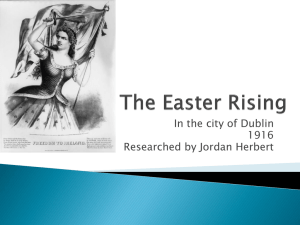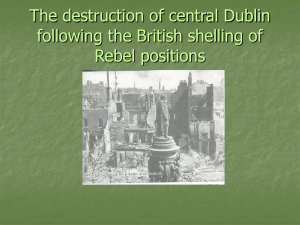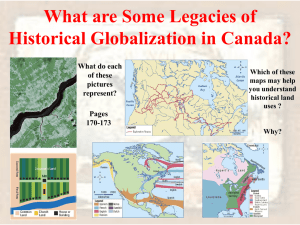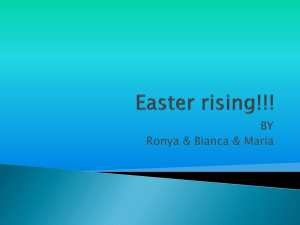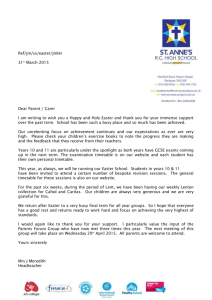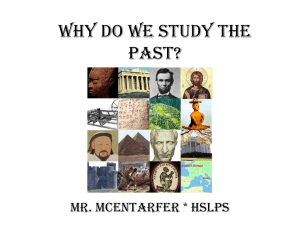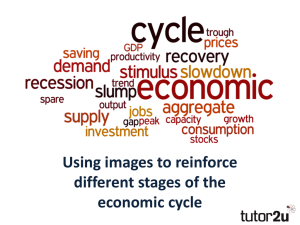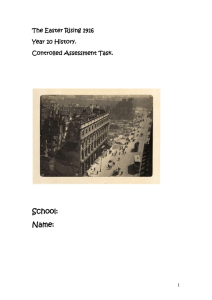Symposium Presentation - Connected Communities Heritage Network
advertisement
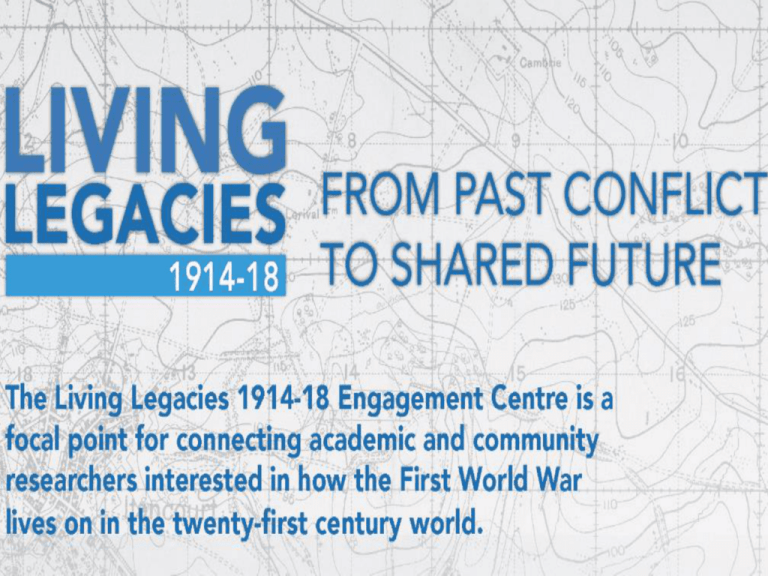
Researching WW1 in Northern Irelanda Divided Society? Northern Ireland as a politico-geographical entity was forged out of division- and armed opposition. The image on the right is a signed declaration by 237,368 men and 234,046 women who pledged to resist the imposition of Home Rule and the creation of a Dublin government. In 2016, Northern Ireland remains divided. We have a segregated education system, segregated social housing and segregated services (health centres etc.). Ethno-national divisions and their consequences for commemoration 2011 census data for NI -40% of usual residents had a British only national identity -25% had Irish only national identity - 21% had Northern Irish only national identity (NISRA 2012) “1916 in 1966: Commemorating the Easter Rising' looks closely at how the Irish government reinvented the message of Easter 1916 through the official golden jubilee celebrations of the nationalist Rising. This collection of essays explores the organization of various unofficial commemorations in Northern Ireland in 1966 and the significance of these for nationalist and unionist politics in the mid-1960s.” Grassroots discourses on the Somme and the Easter Rising – Oppositions to ‘Shared’ Remembering - A civic event should be held to mark the centenary of the Easter Rising, a Mid and East Antrim councillor has suggested. Sinn Féin’s Patrice Hardy made the comments during last Monday night’s meeting of the local government authority (NewsLetter 2015, online) “They are entitled to remember their dead, but holding a civic reception to honour the rising is extracting the urine. Innocent people died when their 'heroes' tried to hold wartime Ireland to ransom. There was nothing honourable about that heinous rebellion.” “A memorial service to remember the 116 British soldiers and 16 RIC men killed would be acceptable.” “Let them have their wee commemoration for the cowardly thugs, meanwhile I will be participating in and watching events where real brave men Protestants and Catholics died at the Battle of the Somme.” The Ethics of Co-Production in a Divided Society Living Legacies has outlined five main research strands… The broad aims of Living Legacies Engagement Centre are to: 1. Explore, interpret and record the 'living legacies' of the First World War. 2. Help communities across the UK to: • tell their stories and share these stories with others; • rediscover the forgotten First World War heritage in our landscapes; • find out why and where people moved as a result of the war; • express stories about the conflict through drama and theatre. 3. Connect diverse stories and experiences, through collaborative research, to build a better, shared understanding of the living legacies of the First World War… Yet we undertake this work in particular research and political environments. The research environment in the UK is one where funders are emphasising the role of co-production, community ownership, and academia breaking out of its traditional role to impact upon communities, public practice and often policy. The political environment in Northern Ireland is one which is not yet post-conflict, with physically segregated communities (many of whom suffer Multiple Deprivations- see NISRA 2010) struggling to deal with the past, let alone engage in shared remembering. My concern is that we pursuing ethically questionable outcomes, in seeking to modify our positions as researchers – whilst the expectations of the public remain the same – and also bring two distinct sets of memorialisation, and identity, together. The Ethics of Co-Production in a Divided Society 1. The Arts and Humanities Research Council (AHRC) outlines their expectations for Societal and Economic Impact as follows: The Research Councils give their funding recipients considerable flexibility and autonomy in the delivery of their research, postgraduate training and knowledge transfer activities. This flexibility and autonomy encompasses project definition, management, collaboration, participation, promotion and the dissemination of research outputs; this approach enables excellence with impact. In return, the Research Councils expect those who receive funding to: • demonstrate an awareness of the wider environment and context in which their research takes place • demonstrate an awareness of the social and ethical implications of their research, beyond usual research conduct considerations, and take account of public attitudes towards those issues • engage actively with the public at both the local and national levels about their research and its broader implications • identify potential benefits and beneficiaries from the outset, and through the full life cycle of the project(s) (AHRC 2015: 86) • As we approach research into commemorative practices of the war, we are urged by Research Councils (the ESRC encourage co-production models too) to democratise the relationships between “researcher” and “researched”, or indeed, “Researcher” and “audience”. • The aims of Participatory Action Research, the formal methodology used in working towards a more egalitarian research approach, are to craft something which: • “is collaborative research, education and action used to gather information to use for change on social or environmental issues. It involves people who are concerned about or affected by an issue taking a leading role in producing and using knowledge about it.” (Durham University 2014:2) From Past Conflict to Shared Future? Using WW1 to manage current conflict. Commemoration – as J. Evershed argues in his doctoral research – has been appropriated by organisations such as the Community Relations Council – as a peacebuilding tool. Groups who wish to obtain funding to visit the Somme, for example, are often required to demonstrate a “crosscommunity element” to their activities or research. These groups will often have undertaken their own research, and meet regularly to commemorate the loss of loved ones and/or local soldiers in the War. The war, for these groups, is an emotionally salient site of identity construction. This is particularly true for the Protestant-Unionist Community, but equally so for Republicans remembering the Easter Rising. Can we have shared remembering of the Somme and the Easter Rising? Jim McAuley’s forthcoming book Very British Rebels (2016) Separate lives and separate commemorations? Discussion Questions • The research environment- are the public aware and/or amenable to moving from audiences/participants to ‘co-researchers’? • Do the public deserve to have ‘experts’ on hand – given the status afforded to senior academics? • The political environment – is a shared remembering feasible, or even desirable? • What are the ethical challenges of trying to transform commemorations- which are often the praxix of extremely salient, meaningful identities?
